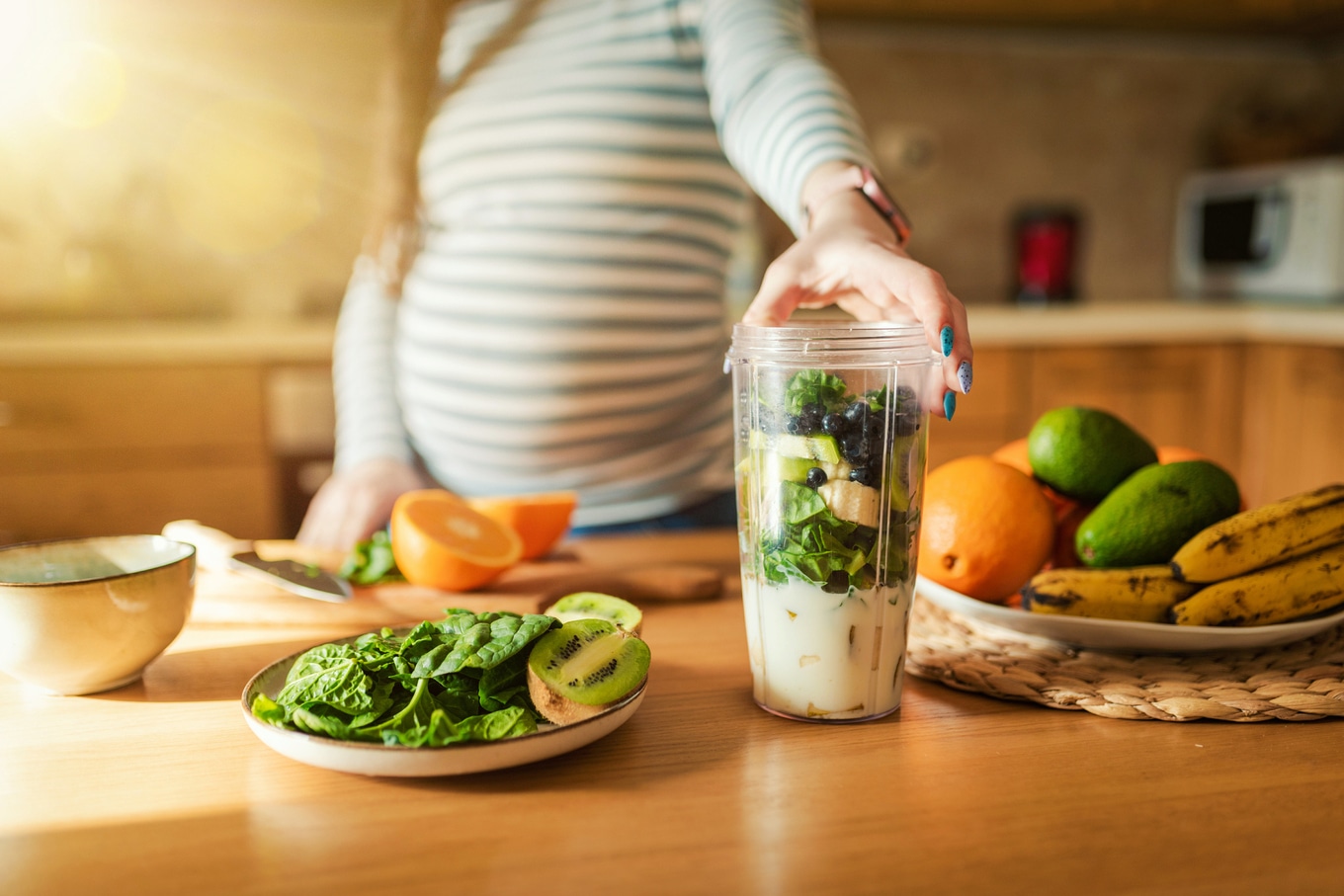A direct link has been found between fiber intake during pregnancy and infants’ brain development. A new study conducted by researchers at the University of Yamanashi in Japan, and published in the medical journal Frontiers in Nutrition, sheds light on the crucial role of maternal nutrition and its impact on children’s health.
Previous research has already highlighted the risk of diseases in children as they grow older if they experience undernutrition during pregnancy. Despite this awareness, maternal malnutrition remains a persistent issue affecting women worldwide, the research authors note.
 Ivan Samkov/Pexels
Ivan Samkov/Pexels
Building upon previous studies that demonstrated how a low-fiber diet during pregnancy negatively affects brain nerve function in children, the Japanese researchers embarked on the first human cohort study to investigate these effects more comprehensively.
Fiber intake during pregnancy
Fiber is abundant in plant foods, including legumes, whole grains, fruits, and vegetables. Animal foods, on the other hand, contain no natural fiber.
“Most pregnant women in Japan consume far less dietary fiber than what is recommended,” Dr. Kunio Miyake, the lead researcher and author of the study, said in a statement.
“Our results provided reinforcing evidence that undernutrition during pregnancy is associated with an increased risk of neurodevelopmental delay in children.”
The study analyzed data from more than 76,000 mother-infant pairs participating in the Japan Environment and Children’s Study, an ongoing project aiming to explore how the environment influences children’s health.
By comparing children’s development from mothers with varying levels of dietary fiber intake during pregnancy, the researchers made significant findings. The children of mothers with lower fiber intake were more likely to exhibit neurodevelopmental delays, affecting communication skills, problem-solving abilities, personal-social skills, and both large and small muscle coordination.
It was revealed that the median dietary fiber intake in Japan was just over 10 grams a day, with a mere 8.4 percent of Japanese pregnant women meeting the recommended fiber intake. Notably, the recommended daily dietary fiber intake differs across countries, with Japan suggesting 18 grams per day, compared to 28 grams in the United States and Canada.
 Adobe
Adobe
The researchers noted that although the study considered the impact of folic acid intake during pregnancy, the possibility of other nutrients influencing brain development cannot be entirely ruled out. Moreover, the impact of dietary fiber intake from supplements remains unexplored.
Similarly, a 2021 study on Australian women found that, despite the importance of consuming adequate fiber during pregnancy, many pregnant women do not eat enough fiber. That study found that women eating high-fiber diets tended to eat more fruit (mainly apples and bananas) and vegetables than women who eat a low-fiber, often Western-style diet.
The authors of this study noted that increased knowledge of fiber-rich fruit and vegetables could help target healthy eating strategies and support women to optimize their fruit and vegetable intake, especially during the critical period of pregnancy.
 Getty
Getty
Both studies emphasize the importance of nutritional guidance for pregnant mothers, with Miyake stressing that this guidance could significantly reduce the risk of future health problems for their children.
As this research opens new avenues for understanding the significance of maternal nutrition on child brain development, experts and policymakers are likely to emphasize the importance of balanced diets during pregnancy to ensure healthy outcomes for the next generation.
What are the benefits of fiber?
In addition to the benefits of a high-fiber diet during pregnancy, previous studies have shown that increasing dietary fiber consumption is linked to a lower risk of various chronic diseases, including type 2 diabetes, cancer, and cardiovascular disease. One study published last year also found that people who eat a high-fiber diet have fewer antibiotic-resistant bacteria, viruses, and fungi—also known as antimicrobial resistance—in their guts.
For this study, the researchers found that regularly eating a diet with higher levels of fiber and lower levels of animal protein, especially from beef and pork, was significantly correlated with lower levels of antimicrobial resistance genes (ARG) among participants’ gut microbes. The study participants with the lowest levels of ARG in their gut microbiomes also had a greater abundance of strict anaerobic microbes, which are bacteria that do not thrive when oxygen is present and are a hallmark of a healthy gut with low inflammation.
 Adobe
Adobe
“The [study] results lead directly to the idea that modifying the diet has the potential to be a new weapon in the fight against antimicrobial resistance,” study leady Danielle Lemay said in a statement.
“And we’re not talking about eating some exotic diet either, but a diverse diet, adequate in fiber, that some Americans already eat,” Lemay said.
For the latest vegan news, read:
JUMP TO ... Latest News | Recipes | Guides | Health | Subscribe









